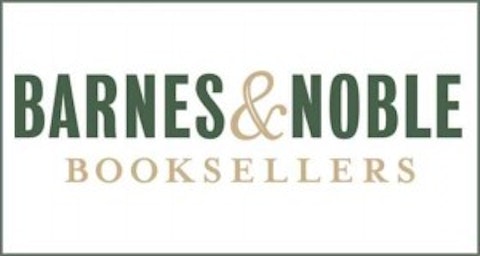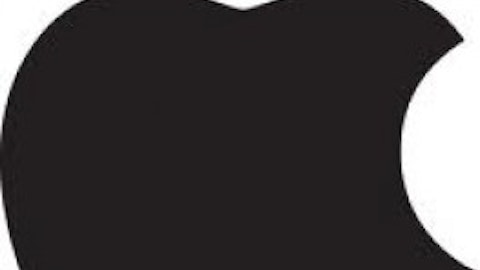
Potential Loss of Store Customers
The naming of its digital division seemed to have foreshadowed the Nook business’s isolation. Nook has been nothing but an obscure and money-losing undertaking for Barnes & Noble, Inc. (NYSE:BKS). It’s never a good business idea to self-compete among different divisions within your own company.
Pitching the Nook against Barnes & Noble’s physical stores provided a perfect recipe for a disastrous business strategy. It almost amounted to business cannibalization, meaning that the more books sold on the Nook, potentially the less purchased at Barnes & Noble, Inc. (NYSE:BKS) stores. It was at best a zero-sum game for the company as a whole.
There’s no denying that physical bookselling now faces unprecedented challenges as digital-book sellers like Amazon.com, Inc. (NASDAQ:AMZN) and Apple Inc. (NASDAQ:AAPL) push further to improve the ease of their e-book distribution. E-books and the vast flow of free information on the Internet can make a trip to a bookstore, and buying physical books, less appealing. This may be especially true for occasional book buyers who don’t have an emotional attachment to the physical bookstore’s atmosphere, and thus can easily stop visiting such stores.
Focusing on Store Operations
To make up for the potential loss of customers to e-reading, Barnes & Noble has to find ways to promote itself and sell more books to its frequent and loyal customers. If that promoting process proves successful, Barnes & Noble may be able to attract some of those e-book customers back to its stores.
Given that its goal is to retain customers at its bookstores, building a digital book division is totally counterproductive for Barnes & Noble, Inc. (NYSE:BKS) — but winning the fight for store customers is still possible. A recent Bloomberg report indicates that despite e-books’ increasing popularity, print books still command 80% of the total market.
Getting readers interested in e-reading has become more of Amazon.com, Inc. (NASDAQ:AMZN) and Apple Inc. (NASDAQ:AAPL)’s business. The popularity of Apple’s iPad has given e-books another powerful publishing platform. The Apple’s iBookstore actually supports e-book downloads across Apple devices powered by its iBooks app.
Compared to Apple devices and the Kindle, the Nook has remained a second-rate product with limited functionalities.The Nook could be very much competing in the shadow of iBooks and Kindle Fire. As a physical bookstore operator, Barnes & Noble, Inc. (NYSE:BKS) is not suited for the digital book business, especially considering the mounting challenges from Apple Inc. (NASDAQ:AAPL) and Amazon, two of the most innovative companies.
Ways to Increase Store Sales
Can Barnes & Noble make its bookstores work again? If so, how should it go about it? First, take a look at Barnes & Noble’s membership program. Presently a virtual member-benefit scheme that rewards frequent customers with discounts, could it be made into an actual member club of some sort? Why can’t bookstores sponsor or host some kind of in-store book club activities for their customers of book lovers? That would be something that an Apple device or Kindle Fire could never deliver.
Imagine what could happen when people join different Barnes & Noble, Inc. (NYSE:BKS) book clubs. Members could potentially come to the store more often for scheduled club meetings and book discussions, and they might also be willing to buy and read the required or recommended books beforehand. All these initiatives could potentially help increase book sales for the store.
Bookstores in general have a friendly policy about book browsing. While it’s wise to keep such a long-standing policy, booksellers cannot be too content with customers’ free browsing when it doesn’t subsequently generate sales. Most people probably have read a book or two for free in a bookstore. Thus, doing nothing about this reflects a lack of business initiative from booksellers.
A service like providing book-club social events can encourage interested customers to purchase a book before attending. Other book-related services could include in-store storytelling or poetry reading by customers. It’s up to bookstores to take the charge if they wish to remain relevant in the book business.
Just like that not all customers visit bookstores, only some investors may be interested in investing in bookstores. The bookselling market has indeed seen more stores going out of business amid the seemingly accelerated e-reading trend. But since most of the book sales still come from print books, as the largest national book chain, Barnes & Noble, Inc. (NYSE:BKS) stands a chance of bouncing back.
Bookstores are where investors can potentially register the most cash at the end of the day. But only those that have managed to bring in the most buying customers and are able to report increased revenues over time will remain open continually.
The article The Nook: An Unfortunate Retreat for Barnes & Noble originally appeared on Fool.com and is written by Jay Wei.
Jay Wei has no position in any stocks mentioned. The Motley Fool recommends Amazon.com and Apple. The Motley Fool owns shares of Amazon.com and Apple. Jay is a member of The Motley Fool Blog Network — entries represent the personal opinion of the blogger and are not formally edited.
Copyright © 1995 – 2013 The Motley Fool, LLC. All rights reserved. The Motley Fool has a disclosure policy.





